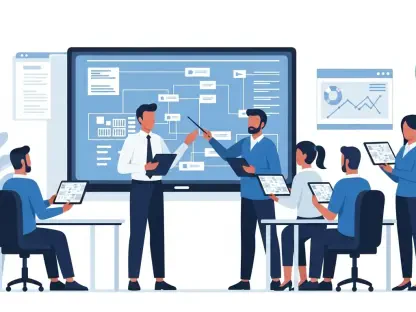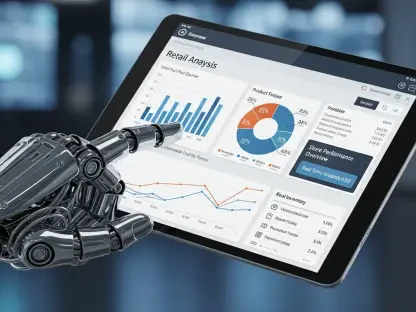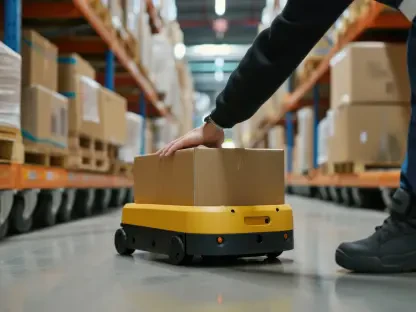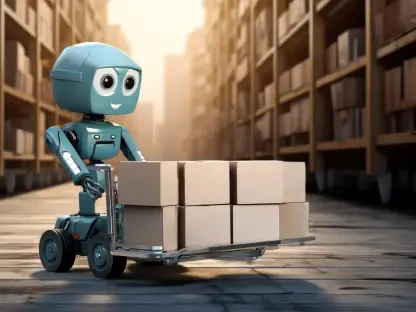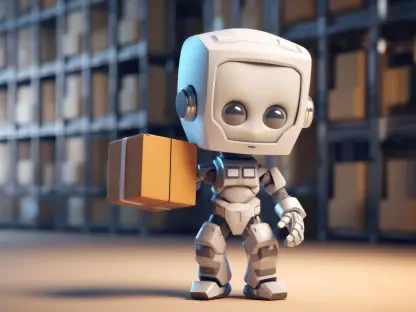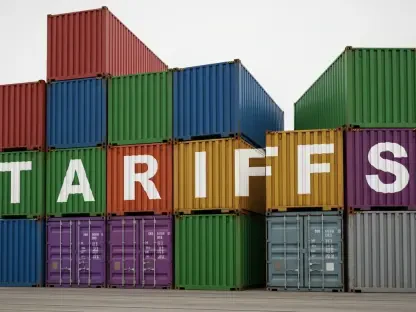I’m thrilled to sit down with Rohit Laila, a veteran in the logistics industry with decades of experience spanning supply chain management and delivery operations. Rohit’s passion for integrating technology and innovation into logistics has made him a respected voice in the field. Today, we’re diving into his insights on building a business grounded in values, creating meaningful client relationships, and navigating the complexities of a multifaceted logistics operation. Our conversation explores how to bring a human touch to an often impersonal industry, the importance of adaptability in meeting client needs, and the strategies behind ensuring reliability and trust in every shipment.
Can you share the story of how you got started in logistics and what inspired you to build a business rooted in faith, integrity, and strong relationships?
My journey in logistics began over two decades ago when I saw a gap in how businesses connected with their clients. I wanted to create something different—a company that didn’t just move goods but built trust. The inspiration came from my personal values of faith and integrity; I believed that if we treated every interaction as a chance to form a real bond, we’d stand out. These principles guide every decision we make, from how we communicate with clients to how we handle challenges. It’s about showing up with honesty and care, day in and day out.
How do you bring a personal touch to an industry that often feels cold and transactional?
We’ve made it a priority to ensure every client feels heard and valued. Unlike some companies where you’re just another account number, we focus on being accessible. I’m often on the phone myself, or it’s someone from my team who knows the client’s history and needs. We remember the small details—like a client’s preferred communication style or past challenges they’ve faced—and tailor our approach. I recall a time when a small business owner was stressed about a delayed shipment for a critical event. We not only expedited the delivery but also checked in afterward to ensure everything went well. That kind of follow-through builds loyalty.
What does it mean to you to be a positive force in a sometimes gloomy industry?
To me, it’s about changing the narrative. Logistics can be stressful for clients, with tight deadlines and high stakes. We aim to bring a sense of calm and optimism to every interaction. My team and I focus on solutions rather than dwelling on problems. We greet every call with energy and a can-do attitude. Over the years, I’ve seen how this mindset shifts client perceptions—they start to see us as partners rather than just service providers. It’s incredibly rewarding to hear a client say they feel relieved just knowing we’re on the case.
Your operation covers a wide range of services, from freight forwarding to handling perishables. How do you manage such diversity effectively?
It comes down to adaptability and having the right expertise in place. We’ve built a team with deep knowledge across different areas, so whether it’s perishables needing temperature control or heavy hauls requiring special permits, we’ve got someone who knows the ins and outs. I find perishables particularly rewarding because of the precision involved—one mistake can ruin a shipment. We maintain strict protocols and invest in training to ensure consistency across all services. It’s a lot of coordination, but seeing a complex shipment arrive perfectly makes it worth it.
You’ve talked about turning ‘nos’ into ‘yesses.’ Can you walk us through what that looks like in a real-world scenario?
Absolutely. It’s about refusing to give up when a client’s request seems impossible. A few years back, a client needed an urgent shipment of specialized equipment from halfway across the globe, but every standard route was booked or delayed. Instead of saying no, we brainstormed alternative options, eventually chartering a smaller carrier and rerouting through a less conventional path. It cost us extra effort, but the client was thrilled when it arrived on time. Our approach is to exhaust every possibility—there’s always a way if you’re creative and persistent.
Can you explain how your dual model of direct transportation and partnered carriers benefits your clients?
This model gives us flexibility that many competitors lack. With our own assets, we have direct control over certain shipments, ensuring speed and reliability. But we also work with a network of trusted carriers to expand our reach and capacity. For clients, this means we can handle almost any request, no matter the scale or destination. We vet our partners rigorously, so clients get the same level of service whether it’s our truck or a partner’s. It’s about giving them options without compromising on quality.
How do you ensure safety and reliability when working with external carriers?
Trust is everything in this business, so we don’t take chances. We monitor our carriers constantly—checking their credentials, safety records, and insurance daily. We use technology to track shipments in real time, so we always know where a load is and if there’s an issue. If a carrier doesn’t meet our standards, they’re out of the network. We also communicate this process to clients, so they feel confident their freight is secure. It’s about transparency; they know we’ve got their back every step of the way.
Why is maintaining a personal connection so important to you, even as your business grows?
For me, logistics isn’t just about moving boxes—it’s about people. If we lose that personal connection, we lose what makes us unique. No matter how big we get, I want clients to feel they can pick up the phone and talk to someone who genuinely cares. We’re planning to scale with technology, but not at the expense of human interaction. It’s about balancing efficiency with empathy. I’ve seen firsthand how a personal approach turns one-time clients into lifelong partners, and I’m committed to preserving that.
What’s your forecast for the future of the logistics industry, especially with the integration of technology?
I think we’re on the cusp of a major transformation. Technology like AI and real-time tracking is already changing how we operate, making us more efficient and transparent. In the next decade, I see automation playing a bigger role—think autonomous vehicles and drones for last-mile delivery. But the human element will always matter. Clients will still want someone to call when things go sideways. My forecast is that the companies who succeed will be those who blend cutting-edge tech with a personal touch, ensuring innovation doesn’t come at the cost of trust.


